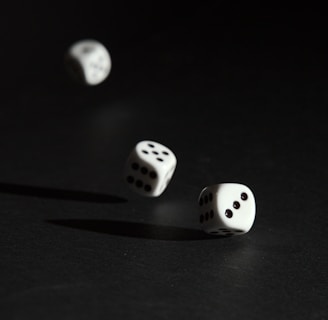Moral Luck: Blame For What You Never Did
“So far, about morals, I know only that what is moral is what you feel good after and what is immoral is what you feel bad after.” - Ernest Hemingway
MENTAL MODEL


Moral luck are when we are blamed or praised for an action or its consequences, even when it is clear we didn’t have full control over either. Humans correlate responsibility and voluntary action. So blame is assigned to people for their actions and their consequences because we believe (a) the action was performed voluntarily and (b) the agent understood the consequences of their decisions. Alternatively, when we perceive that (a) the agent was forced to perform a certain action or (b) the agent performed the action on accident and (c) at the time of the action, the agent didn’t know the consequences these actions would bring, we are much more sympathetic.
Actions entailing good consequences get praise. This correlation between responsibility and result happens at the intuitive level. It’s why killing in self-defense and cold-blooded murder carries a significantly different level of legal punishment. The only problem is that moral luck can often result in counterintuitive blame. For example, one driver runs a red light as a child is crossing the street. He tries to avoid hitting the child but fails and the child dies. Another driver also runs a red light, but nobody is crossing the street. The latter gets a traffic ticket.
If a bystander then is asked to morally evaluate the driver who hit a child, and the driver who simply ran a red light, they would assign greater blame to the former driver. Because the first driver’s action resulted in a death. But there was absolutely no difference in the actions performed by either driver. The only distinction is an uncontrollable event. The child crossing the street. So if we agree with the fact that responsibility should only be assigned when an action is voluntarily performed, both drivers should be blamed equally. This is what makes moral luck problematic. One situation did result in a child’s death, after all.
Thomas Nagel — one of the authors of the concept — identified four kinds of moral luck. For the above example, resultant moral luck fits best. It concerns the consequences of actions and situations. Both drivers were affected by resultant moral luck in that in one situation, a pedestrian appeared on the road, in the other, they did not. Circumstantial moral luck concerns the surroundings of the agent. Are Nazi supporters during Hitler’s regime to blame? It’s very plausible that if those people were born in different countries where no punishment would be furnished upon them for opposing the regime, they would have led entirely different lives. Thus the circumstances dictated their actions.
Constitutive moral luck concerns the character of the agent. There’s no argument that education, upbringing, genetics, and other uncontrollable influences shape your personality. That’s widely known and accepted. Your personality then dictates your actions to a large extent. Thus should we blame people for being angry, selfish, or shy, if these traits come from external environmental effects? Causal moral luck deals with the actions determined by external events. The person has no control whatsoever. The idea remains: moral luck suggests that here is a huge difference between intending to do something and being environmentally, personally, or circumstantially forced into that action and the outcome that came with it.


Real-world implications of moral luck:
Traffic Accident: two drivers are speeding. If one hits a pedestrian due to unforeseen conditions (e.g. a child suddenly runs into the street) and the other does not, the outcomes result in different moral judgments even though their behavior was identical.
Medical Decisions: a doctor follows standard procedures during surgery. Unexpected complications creep up and result in a poor outcome for one patient and a good outcome for another. The doctor’s moral responsibility is then judged differently based on the patients. Nobody cares to realize that the doctor’s actions were analogical.
War and Conflict: soldiers are operating under similar orders. But they are involved in vastly different outcomes due to chance events and enemy actions. Moral assessments of their heroism vary significantly, despite identical skill and intentions.
Business Leadership: a chief executive officer (CEO) makes a decision based on sound judgment. Unfortunately, due to an unforeseen market crash, the outcome is disastrous. Alternatively, a similar decision by another CEO results in success because market conditions are favorable. But one has success and the other failure on their record, changing how they are morally and professionally perceived.
How you might use moral luck as a mental model: (1) judge responsibility, not results — when evaluating your own or others’ actions, consider to what extent the outcomes were in or beyond control; (2) have safety margins — recognize that even well-intentioned actions bring unforeseen results, and use this understanding to build contingency strategies in advance of failure, since you do not control everyone’s actions but you do control your reactions; (3) be empathetic — use the concept of moral luck to acknowledge that countless factors beyond people’s control influence their actions, especially in personal and workplace relationships; (4) befriend the critic — use moral luck as a lens through which you see your own decisions, reflecting on how uncontrollable factors influence outcomes and how you can plan for a brighter tomorrow.